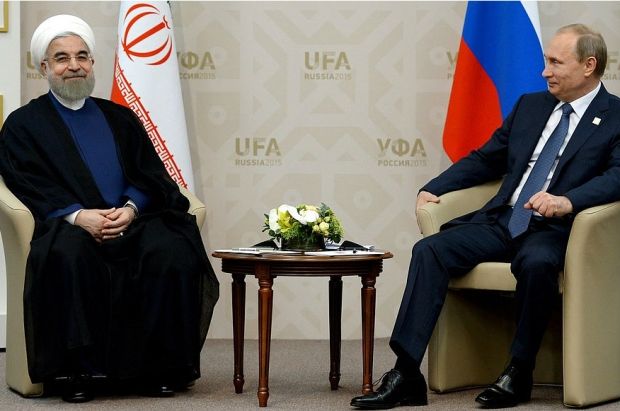
According to the Atlantic Council, advocates of this outlook point to several developments, including:
- establishing a US-Russia channel on the Ukraine crisis between Victoria Nuland and Russia's Deputy Minister Grigory Karasin without Ukrainian participation;
- Nuland's presence in Kyiv in mid-July to lobby the Verkhovna Rada to pass the constitutional change on decentralization granting the Donetsk and Luhansk Peoples' Republics special status, as required by Minsk II;
- praise by President Barack Obama, Kerry, and other senior US officials for Moscow's role in clinching the nuclear deal with Iran in late July; and
Kyiv has been understandably disappointed by limited support from the West in addressing Moscow's aggression in Ukraine. While the White House has been slow to recognize the grave danger posed by Putin's revisionist ambitions, its policies in fact have been improving with time.
A year ago, the White House considered it provocative to send night-vision goggles to Ukraine. In February, while rejecting advice by a group representing the Atlantic Council, the Brookings Institution, and the Chicago Council of Global Affairs to give Ukraine defensive lethal weapons, the Pentagon quietly shipped armored vehicles (Humvees) there. According to the Wall Street Journal, the administration might now send Ukraine anti-missile radar batteries with a range of 25 to 40 kilometers. Kyiv critically needs this, because long-range Russian artillery causes more than 75 percent of Ukrainian casualties.
Since Russia's seizure of Crimea, the administration has also taken a tougher stance on sanctions. This hasn't stopped, despite Washington's cooperation with Putin on Iran. In late July, after the United States, Russia, and four other world powers concluded a nuclear accord with Iran in Vienna, the White House hit Moscow with sanctions against eleven more people and fifteen more companies.
Despite its courting of Kremlin cooperation on Iran, the Obama administration has toughened its policy toward Moscow in significant ways within NATO. Actions that have been interpreted as concessions to Moscow are, on closer inspection, nothing of the kind.
It's unclear whether the opening of the Nuland-Karasin channel will yield any results. Kremlin policy on Ukraine is made by Putin and a small circle of senior advisers such as Chief of Staff Sergei Ivanov and Security Council Secretary Nikolai Patrushev. Even Foreign Minister Sergey Lavrov has little influence. Yet this channel gives Washington an entrée into the Minsk negotiating process that it did not have before.
Meanwhile, despite the internal controversy it has generated, Nuland's push for constitutional change is very much in Ukraine's national interest. For better or worse, Ukraine is now stuck with the Minsk II ceasefire which—despite its flaws—has one key advantage: German Chancellor Angela Merkel is strongly committed to keeping sanctions on Russia until it implements all Minsk provisions.
Nuland was at the Verkhovna Rada arguing for constitutional change in order to strengthen Merkel's hand in maintaining sanctions. This is the right play. Moscow insists on a change to Ukraine's constitution that would not only grant the Donetsk and Luhansk Peoples' Republics (DNR and LNR) internal autonomy, but also a veto power over Ukraine's national security policy. Neither the United States nor Germany accept that interpretation of Minsk. The change enacted last month meets Ukraine's Minsk commitments, boosting Merkel's position if she moves to renew sanctions in January for Kremlin non-compliance.
In the same spirit, Kyiv must prepare for elections in Donbas. Under Minsk II, those elections must be consistent with Ukrainian law and international standards. It is safe to assume, given its current policies and activities, that the Kremlin will block such elections in part of Donbas controlled by Russian proxies.
Ukraine has been under siege since the "little green men" first appeared in Crimea. From the start, US and EU policy toward Russia and Ukraine hasn't been strong or far-sighted enough. But it has improved with time and—while Iran may have prompted some Washington praise for the Kremlin—it hasn't diminished Washington's support for Kyiv.

